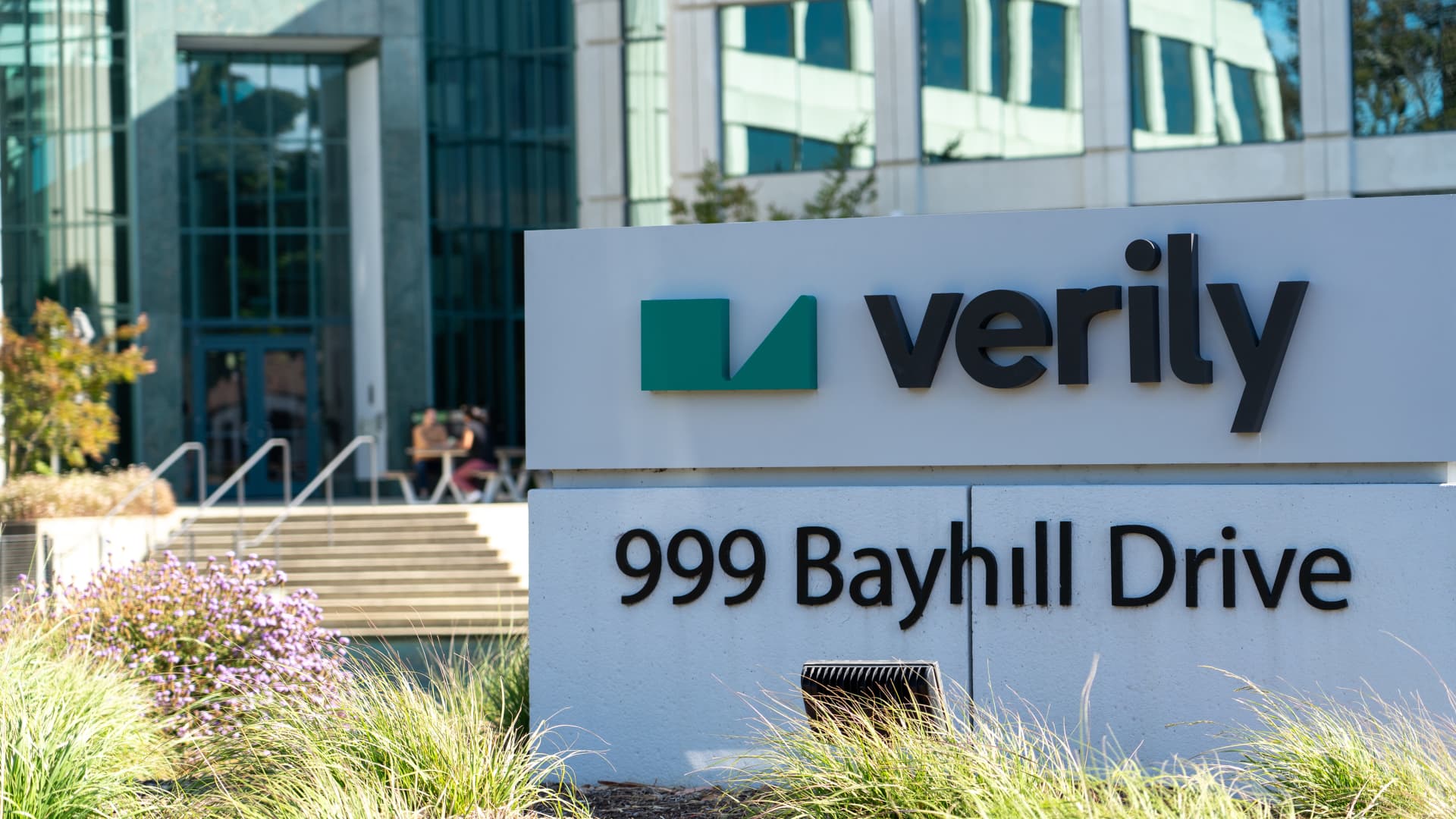Verily headquarters in San Bruno, California.
Courtesy: Verily
Verily is selling its stop-loss insurance subsidiary, Granular Insurance Company, to the insurance provider Elevance Health, the Alphabet health tech company confirmed to CNBC on Thursday.
Verily is one of Google’s sister companies and operates within Alphabet’s “Other Bets” category. The Granular sale is the latest in a series of sweeping changes at the precision health company, which has slashed its workforce, restructured its business and overhauled its executive leadership in recent years.
The terms of the deal were not disclosed.
Verily launched Granular, initially called Coefficient Insurance Company, in 2020 with financial backing from the commercial insurance unit of the Swiss Re Group. The business offered self-funded employers and captives medical stop-loss, fronting reinsurance and fronting solutions that used “proprietary technology,” Verily said.
Alphabet’s health company has raised more than $1 billion, and it has attracted big-name talent. Apple’s former head of health strategic initiatives, Myoung Cha, joined Verily as chief product officer last year, and Andrew Trister, Verily’s chief medical and scientific officer, was a founding member of Apple’s health team. Amy Abernethy, who served as principal deputy commissioner at the U.S. Food and Drug administration, joined the company in 2021 before departing in late 2023.
But Verily has struggled to find and stick to a winning niche in health care.
The company started as a moonshot in 2015 within Alphabet’s innovation lab X, formerly Google X, where it developed hardware like continuous glucose monitors. Verily pivoted to pandemic response when Covid-19 broke out in 2020, and it switched directions again to focus on precision medicine in 2022.
Verily introduced a new artificial intelligence-powered chronic care solution in June called Lightpath. The first offering is metabolic health focused, and it will support patients taking the blockbuster weight loss medications called GLP-1s, using continuous glucose monitors or other interventions, according to a release.
And now, the company is getting out of the insurance business.
Elevance Health did not immediately respond to CNBC’s request for comment. The deal was first reported by Business Insider.






